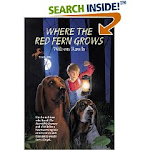Charlotte Mason invented the word "twaddle" and focused on keeping children away from it. I especially like her focus on quality literature, "living books" or really good nonfiction for science and history rather than boring textbooks, spending a lot of time in nature and keeping nature journals, poetry memorization, narrations of learning, penmanship practice by creating copy books of scripture/poems/sayings to keep, historical timelines, spending time with good art and music, and doing handicrafts (woodworking, knitting, etc.).
Maria Montessori made possible the impossible by working in the slums & institutions of turn of the century Italy. I love her emphasis on having a beautiful classroom which children want to be in, treating children with respect by using quality things (ie real china) and giving them responsibilities, practical life learning to foster independence, learning by doing, and limited freedom of choice to research/learn what interests them.
Rudolph Steiner believed in a child's imagination, and created the Waldorf School. While a Waldorf School is a little free for me, I do love their emphasis on the beautiful, their focus on art study, simple free play from natural objects (ie silk scarves and wood blocks), handicrafts, great stories (ie fairy tales and myths), and creating their own textbooks from what they've learned rather than reading textbooks to learn. I also like the emphasis on severely limiting, if not prohibiting altogether, tv/computer time.
Rudolph Dreikurs believed in natural or logical consequences to our actions rather than working towards punishment or rewards. He also focused on teaching a child to realize where their misbehavior is coming from and how to work things out with others. I very much like the modern day take on this philosophy by Jane Nelson, Ed.D. My behavior management plan is loosely based on Positive Discipline and Positive Discipline in the Classroom.
As you can see, while Mason is the most stringent and Waldorf is the most free, a lot of their focuses overlap. How would this translate to a classroom for me? First and foremost, I will attempt to make a beautiful classroom with pictures of quality art and nature, plants, fish, a cozy place to read, good organization of materials, and play good music often. I would love to be able to just read good books rather than having "readers," this of course would lend to learning an extensive vocabulary. I would have a writing workshop as a method for teaching grammar & spelling to emphasize what needs to be learned rather than what they already know /and/ obviously encouraging the craft of writing. Included in this workshop would be a Daily Oral Language session, which is a time of correcting grammar of a couple sentences every day for review.
I would emphasize experiential learning by science experiments, nature journals, field trips, "experiencing" other civilizations/cultures (ie simulation/storypath units), penmanship copybooks, and hands on/discovery learning in every subject. We would definitely sing a lot. (I love to sing. And yes, I love "The Sound of Music.") I would emphasize the practical in math (how we'll really use this in the real world) and make sure the concepts and facts are truly understood, rather than just getting the answers right. And finally, we would study the Bible by really studying the Bible. I plan to give my kids time for their own personal worship every day by reading & journaling.
So, how does A Becka fare in all this philosophy? Keep in mind that I've just looked over it, but haven't actually taught it yet.
Pros:
- Very Bible based - The textbooks are loaded with Scripture, and the history books incorporate Bible history in with world history.
- Part of their penmanship program does include good copy work rather than just worksheets.
- Math includes a daily review time before the lesson.
- Emphasis on geography and mapwork.
- Poetry memorization.
Cons:
- Lots of worksheets, quizzes, and tests. Including weekly penmanship and speed reading quizzes. Seriously, this is more than I had in school.
- Emphasis on cursive from kindergarten up. I'm sorry, I'm just not a big fan of cursive. Although, I do think it's important to learn to know, I would rather have neat, easy to read handwriting.
- Science program is pretty shallow overall and just skims over a lot of terms. Fortunately, I'm allowed to do my own thing in science and social studies.
- Bible program tells Bible stories while showing pictures. If this were kindergarten that would be fine, but for grades 5 & 6? Seriously...
- Readers with clips of stories. Okay, at least its based on good literature for the most part, but the idea of summary/abridged/clipped versions annoys me.
- Traditional grammar worksheets, not a lot of room for creative writing.
That's all I can think of at this moment. As I really get into the first few weeks of school, we'll see how the curriculum really jives with me.


1 comment:
It's so funny or interesting to me that I've gotten a couple of those "free" type learning books to start preparing myself for parenting!
I'll be praying for you as you embark on this exciting journey.
I love you.
Post a Comment